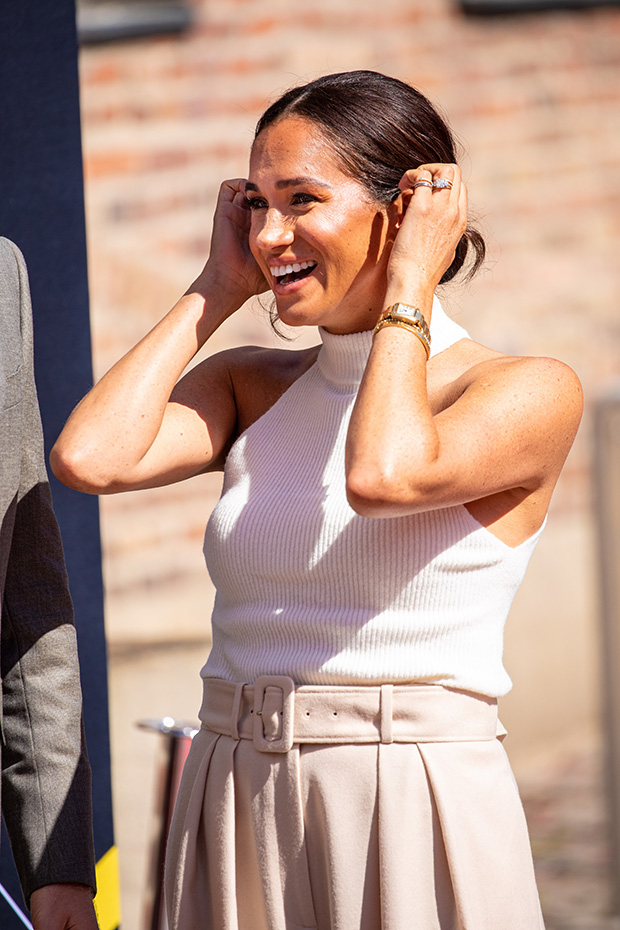
Meghan Markle won the defamation lawsuit her estranged sister Samantha Markle filed against her in 2021. A Florida judge ruled in Meghan’s favor and threw out the case on Thursday, March 31. The Duchess of Sussex was accused of spreading malicious lies about Samantha in an unauthorized biography and during Meghan and Prince Harry’s bombshell Oprah Winfrey interview.

Meghan’s estranged half-sister from father Thomas Markle’s first marriage claimed Meghan defamed her in the 2020 book Finding Freedom: Harry and Meghan and the Making of a Modern Royal Family, written by Omid Scobie and Carolyn Durand, by “contributing false information to the book through her agent and press secretary,” according to court documents, per Insider.
Samantha also said in the $75k lawsuit that Meghan lied about being an “only child” in her interview with Oprah. Meghan had told Oprah at the time that she didn’t know Samantha, having only met her a handful of times. “I grew up as an only child,” Meghan said. “Which everyone who grew up around me knows. I wished I had siblings. I would’ve loved to have had siblings.”
Samantha’s legal rep, Jamie Sasson, broke down how the Oprah comments were allegedly defaming in an August 2022 interview. “When she went on Oprah and said ‘I grew up as an only child’ there’s only one way to look at that, that she was an only child,” he told Newsweek. “Which then as a result, made the general perception of the public believe that my client was a liar and was making up a story claiming that she was Meghan Markle’s sister when, indeed, she truly was and this is what this comes down to.”
In a deferred judgement, Judge Charlene Edwards Honeywell granted Meghan her motion to dismiss the lawsuit, arguing Meghan was not liable for the contents of Finding Freedom and that she gave her “opinion” during the Oprah interview. “As a reasonable listener would understand it, defendant merely expresses an opinion about her childhood and her relationship with her half-siblings,” the judge wrote, per BBC. “Thus, the court finds that defendant’s statement is not objectively verifiable or subject to empirical proof…. plaintiff cannot plausibly disprove defendant’s opinion of her own childhood.”


